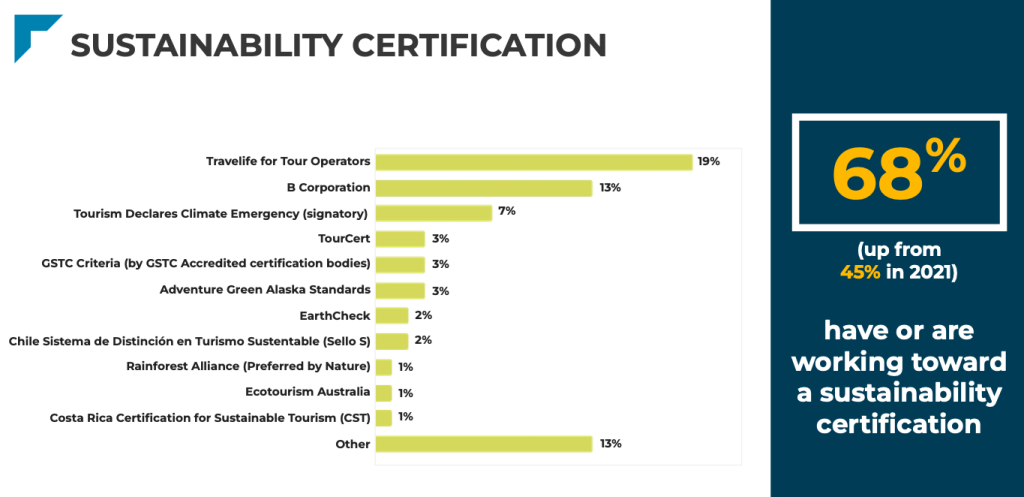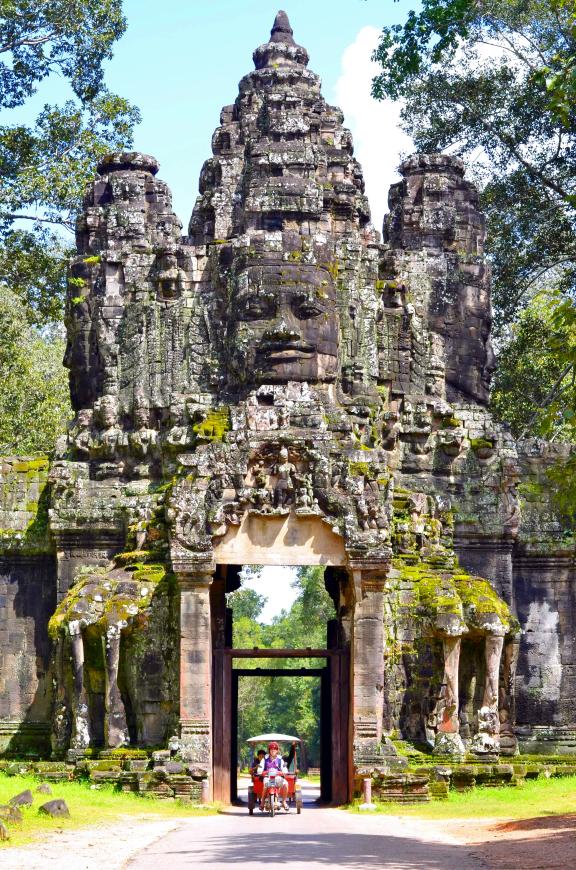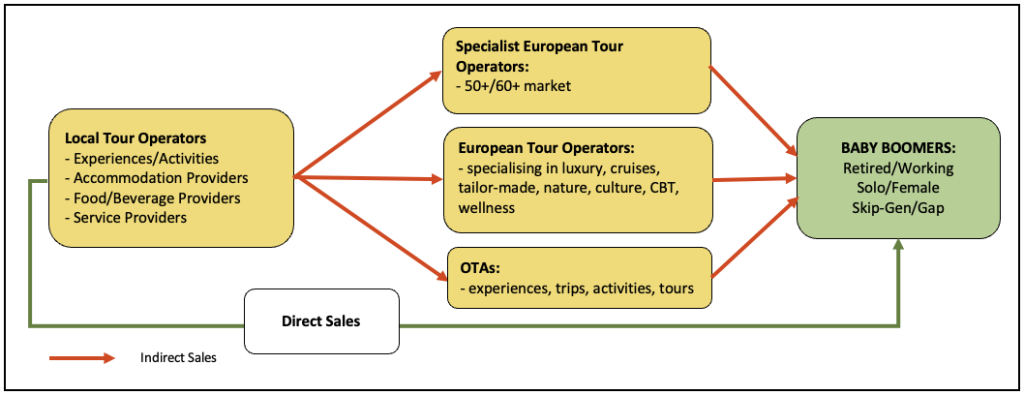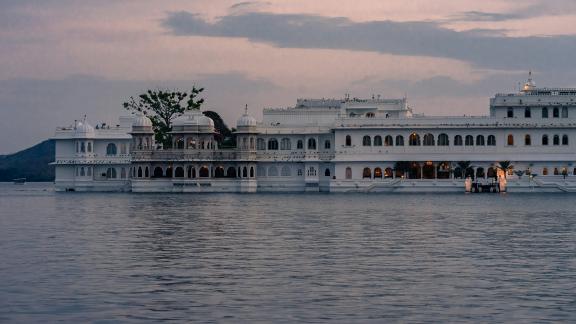
Entering the European market for Baby Boomers tourism
European Baby Boomers have strong ideas about where they want to travel and what they want to do when they get there. They use the internet to research their options and to make bookings. Most Baby Boomers like to be active on holiday, so products that combine activities with meaningful, immersive or luxury experiences are most appealing. Solo travel for Baby Boomer women is a particularly fast-growing segment. Baby Boomers mostly book trips with European tour operators that specialise in this market.
Contents of this page
- What requirements and certifications must baby boomer tourism meet to be allowed on the European market?
- Through which channels can you get baby boomer tourism on the European market?
- What competition will you face on the baby boomer tourism market?
- What are the prices for baby boomer tourism products?
1. What requirements and certifications must baby boomer tourism meet to be allowed on the European market?
By law, the European tour operator market has to comply with several regulations to ensure their clients are safe and financially protected. To do business with the European market, you have to align your business processes with theirs, so you can meet their expectations. They expect you to meet the conditions they set in their codes of conduct and/or terms of business. Sustainability in every area of tourism provision is essential for European tourism suppliers, so you must embed sustainability into your business.
What mandatory and additional requirements do buyers have?
Mandatory and additional requirements for Baby Boomer tourism services are common across the sector. They include:
- The European Package Travel Directive
- General Data Protection Regulation (GDPR)
- Liability Insurance and Insolvency Protection
You can find out about them in the CBI study What requirements must tourism services comply with to be allowed on the European market. This study will help you understand the requirements that European tour operators have to comply with. If you understand the requirements they are bound by and can adapt your business to meet their needs, they will be more likely to do business with you. It is important for European buyers that they can trust their suppliers to meet their and their customers’ needs.
What are the requirements for niche markets?
Quality, luxury, personalisation and authenticity are important requirements for the Baby Boomer market. To attract Baby Boomers, you should aim to combine 2 or more of these factors into your travel products. Baby Boomers also use online sources to research their trips so an online presence is also essential. Sustainability is also important to Baby Boomers, so you should incorporate sustainability into your business.
Consider Baby Boomers’ age-related needs
Baby Boomers are advancing in years. Some still consider themselves to be young and active, but many may not. Older Baby Boomers are more likely to consider things like the pace of a tour or the level of comfort they require. If you want to attract Baby Boomers, you should clearly address their requirements as an ageing group. Some of the actions you should consider include:
- Indicate what type of pace your customers can expect. It is fine to cater for different paces as they have different needs at different ages. Take a look at how the tour operator Explore explains trip paces to advise its clients.
- If you offer accommodation through partners, make sure you know that the accommodation is suitable for older customers. Is the accommodation conveniently located or are there lots of stairs? What is the quality of the accommodation like? Baby Boomers are often willing to pay for high-quality accommodation that meets their needs.
- Emphasise safety and security. Baby Boomers value safety and security when they travel. Make sure you work with reputable and responsible suppliers who also take safety and security seriously. This will give your Baby Boomer customer peace of mind.
- Provide all the details you can to reassure them. This could be destination information, potential risks or hazards, local laws and customs. You should also provide clear instructions for emergency situations, how to contact local authorities and find medical treatment.
Baby Boomers seek active, authentic and luxury travel experiences
Baby Boomers want quality, meaningful travel experiences and are willing to spend more for them. They appreciate a wide range of travel experiences that are active, authentic or luxurious. Combining different styles of holiday – such as ecotourism, culture and adventure – is appealing to Baby Boomers.
Maintaining an active, healthy lifestyle and improving wellness is important to Baby Boomers. They enjoy a range of physical activities, which they like to do in different, special locations while on holiday. Examples of these activities that can be packaged for them include walking, playing golf, yoga, sailing, tennis and cycling.
Boomers are especially keen on immersive experiences and like to learn new things while travelling. To satisfy this demand, you can arrange trips with:
- A cultural focus, such as history, music or language.
- Hands-on learning experiences, such as photography, painting, drawing or cooking.
- Taking part in community-based tourism (CBT) activities, which immerse them in the local culture.
- Meeting local people, sharing meals or staying with them.
As many Baby Boomers have more money to spend on travel, luxury is important for them. You should offer Baby Boomers accommodation where they can be assured of good standards. Quality furnishings and bathroom fittings, appropriate to the needs of this older group, are appealing. They appreciate extra touches that go just a little bit further, like complimentary toiletries in reusable containers, filtered water and locally sourced gifts.
You can learn about the luxury market here: What are the opportunities for luxury tourism from Europe?
The table below provides examples of how trips can be packaged to include a combination of styles.
Table 1: Packaged trips for Baby Boomers
| Example Package | Style Types |
Leisurely hiking in a place of outstanding natural beauty to enjoy peace and tranquillity and view the wildlife. Stay at a high-end eco-lodge or community-managed lodge with dinner made from locally sourced ingredients, followed by a cultural performance. | Active, meaningful, wildlife interest, immersive, luxury, wellness, culture |
Safari to see wildlife like gorillas and chimpanzees, or wildlife events like the Great Migration. Stay in luxury lodges or camps with activities like ballooning, walking and river safaris. | Active, meaningful, wildlife interest, immersive, luxury |
A self-guided cycle trip over easy terrain with planned stops en route and an overnight stay in a boutique hotel. | Active, luxury, wellness, immersive, sports interest |
A local food tour that includes trips to local markets to buy ingredients, cooking demonstrations and lessons with a reputable chef, followed by fine dining. | Immersive, food interest, culture, active, meaningful, sightseeing, luxury |
An art and food tour around a local neighbourhood to see how the community uses art and has started small businesses to regenerate their area. | Immersive, culture, food and art interest, meaningful, sightseeing, active |
A visit to a local community to take part in a special event, such as a festival. | Immersive, meaningful, cultural, active |
A guided sightseeing trip with an experienced local guide to see less-visited spots and gain a deeper understanding of places. | Active, immersive, cultural, meaningful |
A visit to a local community with an overnight stay in a local homestay and a homecooked meal. | Active, immersive, meaningful culture |
A tour of less-visited archaeological and/or cultural sites or remote, beautiful areas staying in luxury campsites, community-run lodges or ecolodges. | Active, culture and/or wildlife interest, meaningful, luxury, immersive |
Source: Acorn Tourism Consulting, 2024
Tips:
- Make sure your guides are well-trained and experienced. They should be able to speak the language of your travellers to a high standard or English at least. Baby Boomers are well-educated, experienced travellers and will often ask challenging questions.
- Put high-quality safety measures in place so your customers know what they are. This is particularly important for adventure and sports activities.
- Make your packages attractive for out-of-season travel. Because Baby Boomers like to know they are getting value for money, travelling in low or shoulder seasons is appealing to them.
- Browse the other CBI studies about different markets to help you understand what is important for Baby Boomers. Examples include What are the opportunities in the European luxury tourism market and What are the opportunities in the European CBT market.
Personal touch and online presence are important
Baby Boomers value service highly and often spend a lot of time researching and planning their trips. Suppliers should be confident enough in their products to personalise contact with them and to open channels to communicate directly. At first, contact can be made by email, but you should aim to continue the interaction more personally over the phone, on WhatsApp or FaceTime.
Baby Boomers are becoming increasingly tech-savvy, and there is a rising trend of laptop, smartphone and tablet use. Many Baby Boomers both research and book their travel on the Internet. While travelling, Baby Boomers use their smartphones to find restaurants, experiences and activities. Facebook is the main social media platform, but WhatsApp is also growing in popularity.
An online presence is important to reach the Baby Boomer market, so you should position your website carefully. Start by researching what sort of content appeals to Baby Boomers; blog sites are a good place to start, and there are numerous examples. European tour operator websites also feature lots of content that appeal to Baby Boomers, such as destination guides and blogs, and they feature customer testimonials widely.
Figure 1: Customer testimonials are important to attract Baby Boomers

Source: Wild Frontiers, 2024
Typical websites visited by Baby Boomers for travel inspiration include Sixty and Me, which represents a community of 500,000 women over 60 and covers a wide range of topics, including travel. Consult this list of Baby Boomer travel blogs and websites to find others.
Tips:
- Cater to Baby Boomers’ preference for personalised experiences by offering customised travel plans, direct customer service and unique travel packages. Providing a personalised service builds trust and loyalty with Baby Boomers.
- Your website must be user-friendly and work well on desktop and mobile devices. If websites are difficult to use, it will put Baby Boomers off.
- Make sure you feature reviews from previous Baby Boomer travellers to reassure potential customers.
- Pay special attention to providing information that covers risk management, health and safety.
- The CBI study How to be a successful tourism company online offers detailed guidance to help you create an effective website.
Baby Boomers look for sustainable options
Sustainable tourism is about reducing the harmful impact of tourism. It means acting to minimise its impact and to benefit people, the environment and the economy of the host community now and long into the future. Climate change, resource overuse, plastic in our oceans, poverty and overtourism are all problems that sustainability seeks to address.
Baby Boomers are more sustainable compared to Gen Z. They are loyal customers who prefer brands that they know and trust. For them, quality and sustainability are the same, and both are a priority for which they are willing to pay more. You should work to position your brand as trustworthy, credible and environmentally conscious. Baby Boomers want to know that their travel is helpful to the host community and the environment, and that it contributes to the local economy.
It is therefore recommended that you obtain certification that proves your sustainability. Travelife for Tour Operators is popular and well-known in Europe. TourCert is growing in popularity, and the Good Travel Seal is an affordable scheme. Ever more tour operators who market products appropriate to Baby Boomers are getting sustainability certification. For example, in 2023, 68% of adventure travel suppliers were either certified or working towards certification, up from 45% in 2021.
Figure 2: Sustainability certification schemes for tour operators

Source: ATTA, 2023
The holiday style types (see Table 1) that Baby Boomers enjoy are highly compatible with sustainability. For example, because immersive and meaningful travel experiences are dependent on genuine interactions with the host community, the money spent on these experiences goes to them directly. It is a good idea for operators to incorporate sustainability actions that complement their products.
One tour operator that has a strong reputation for sustainable tourism is Intrepid. They communicate their commitment to sustainability through their purpose, their business actions and their messaging to their customers.
If you cannot afford to become certified as sustainable right now, be sure to include your sustainable actions on your website. Nowadays, buyers are keen to know that the operator they choose is taking steps to minimise harmful impacts on people, places and the planet.
Tip:
- Study the CBI guide How to be a sustainable tourism business to learn about the importance of sustainability in tourism. It tells you what actions you can take and introduces some of the leading certification schemes.
2. Through which channels can you get baby boomer tourism on the European market?
European tour operators that specialise in travel for the over 60s, other tour operators, online travel agencies (OTAs) and your website are the channels that you can reach European Baby Boomers through. Tour operators that market to Baby Boomers often use destination management companies (DMCs) to supply tours and excursions in that destination.
How is the end-market segmented?
The main segmentation to be aware of is whether Baby Boomers are retired or still working, as being retired or still working affects how Baby Boomers travel.
- Retired: The main Baby Boomer segment. They are older, travel more often and for longer, and look for ways to extend their budgets, such as by travelling in the low season and long-stay discounts.
- Working: The second most important segment. They are younger and cash-rich but restricted in time unless they work remotely.
- Solo: This group can be retired, working, men or women.
- Women: The fastest-growing Baby Boomer segment. Safety and confidence in the supplier are critical.
- Skip-Gen: This is where the grandparents take their grandchildren on holiday.
- Gap: A growing segment as more Baby Boomers retire or turn to working remotely.
To find out more about these traveller types and their different characteristics, take a look at the detailed descriptions in the CBI study The European market potential for Baby Boomer tourism.
Figure 3: Baby Boomers seek bucket list destinations, like Angkor Wat in Cambodia

Source: Laurentiu Morariu at Unsplash, 2021
What channels do Baby Boomer tourism products reach the end-market through?
Most Baby Boomers use European tour operators to book their holidays. Booking through a tour operator gives them the peace of mind and the security they need in terms of understanding and accommodating for their needs. There are several operators that specialise in the 60+ market. You should be aware that some European tour operators refer to the 50+ market; others refer to the 60+ market. They are both valid operators to consider working with if you want to attract the Baby Boomer market.
Other tour operators that specialise in luxury or other niches are also key for Baby Boomers. OTAs and direct sales are other sales channels that Baby Boomers use. The chart below shows how the sales process works.
Figure 4: Sales channels for Baby Boomer travel product

Source: Acorn Tourism Consulting, 2024
The channels are further described as follows:
- Local Tour Operators (Direct Sales): Your own website is a good way of reaching Baby Boomers while they research their holidays. You should detail your offerings very clearly to Baby Boomers so they know what to expect. Use the CBI study How to be a successful tourism company online? to help you make the most of your website.
- Specialist European Tour Operators: There are many European tour operators that specialise in the 50+ and 60+ market. They put great emphasis on taking care of their customers, helping them to meet like-minded travellers, and they understand the needs that ageing can bring. Such is the importance of this market that many general tour operators dedicate part of their organisation to catering for older travellers.
Examples include:
- Saga (UK)
- Skan-Club 60 Plus (Germany)
- 60 Plus Reizen (Netherlands)
- Joker (Netherlands) aims to tour the 50+ and solo market.
- Sejour Senior (France) is a travel portal for the 50, 60, 65, 70, 75 and plus markets.
- Silver Surfers (UK) is a lifestyle site and social network that promotes adventure holidays for seniors.
- On-the-Go Tours/Tours for the Over 50s (UK)
- Sunwave/Single trips from 50 (Germany)
- Wild Frontiers – Solo Adventure Tours for Over 50s (UK)
- Intrepid – Over 60s Tours & Holidays (UK) and Explore – Singles holidays for the over 60s (UK) are examples of leading tour operators that cater to seniors.
- European Tour Operators: Other general operators used by Baby Boomers are those that specialise in luxury or other interests of Baby Boomers, such as cruising, nature, culture and CBT.
Examples include:
- Abercrombie & Kent and Original Travel are well-known luxury tour operators in the UK.
- Voyages de Luxe (France) and SilverJet (Netherlands) are other luxury operators in Europe.
- French cruise company Ponant offers some of the most luxurious cruise trips.
- Last Frontiers (UK) offers tailor-made holidays to Latin America.
- The Luxury Safari Company (UK) and Private Safaris (Germany) travel to the major safari destinations in Africa that are popular amongst Baby Boomers.
- OTAs: Baby Boomers who like to make some or all of their own travel arrangements are likely to use a wide range of channels, including OTAs. There are numerous OTAs on the market that Baby Boomers may use, including Viator (the world’s largest), Withlocals and GetYourGuide. UK OTA Responsible Travel/Over 70s Holidays is a portal for responsible holidays offered by a wide range of tour operators.
Other resources for Baby Boomers:
Online travel publications aimed at Baby Boomers are good resources for understanding how to appeal to your audience and holidays. Research might include OTA portals and blogs like 14 best senior-friendly travel groups and the 8 best travel tours for empowered single women over 60 to find the services they need. Other examples include:
- Getting On Travel
- Silver Travel Advisor partners with the leading charity in the UK aimed at supporting older citizens, Age UK, and has produced a range of travel guides. It also partners with a range of relevant travel companies in the market.
- Senior Travel Expert
What is the most interesting channel for you?
Specialist European tour operators offer the most opportunities to reach this market. To find the ones that are most compatible with your business, you should do some initial online research. Once you have a good idea of the most suitable buyers, consider attending tourism trade fairs to meet them. The CBI studies Tips for finding buyers on the European tourism market and 10 tips for doing business with European tourism buyers have lots of useful information to help you.
3. What competition will you face on the baby boomer tourism market?
The competition to attract Baby Boomers is high. As they have the money and time to travel, they can afford to be very particular about where they choose to go and what they do. As a local tour operator, you are in competition with every destination across the globe with similar offers.
Competition can be lessened by emphasising activities, experiences and interests that are unique to the destination. Baby Boomers are sophisticated travellers who look for all round quality experiences, even if their trip has a singular primary focus, such as wellness.
Which countries are you competing with?
The main competing destinations for Baby Boomers are Thailand, India, Morocco and Indonesia. However, there are many more destinations throughout Africa, Asia and Latin America that are popular among Baby Boomers.
Asia attracts a large share of Baby Boomers because of its historic attractions, culture and beaches. Latin America is also popular because of its cultures and wildlife viewing offer, particularly Brazil, Costa Rica and Mexico. Africa, too, is a region that is growing in interest for European Baby Boomers, such as South Africa and Tanzania.
Destinations with a strong portfolio of attractions are appealing. For example, national parks, historical landmarks, unique cultures, a diversity of attractions and places where Baby Boomers can find out more about what interests them.
Thailand
Thailand’s greatest strength is its brand. It has a universal appeal that attracts all types of travellers, including European Baby Boomers. Visitors come to Thailand for its diverse portfolio of attractions, including beaches and tropical islands, unique culture and cuisine, temples, festivals, events, vibrant capital city, wellness offers, adventure activities and experiences.
As well as numerous choices for high-end beach holidays, European Baby Boomers especially enjoy touring the sights of Thailand. Spas and wellness, as well as outdoors and adventure, are major themes promoted by the Thai tourism board, Amazing Thailand, and are suited to the Baby Boomer market. Thailand has a long history of traditional wellness, which it relies on to make its offer stand out from the competition.
Baby Boomers often come to Thailand as part of a regional tour. They will begin or end in Thailand, mainly because air links to Thailand are numerous and reasonably priced. They may include onward travel to Laos and Cambodia to see the temples at Angkor Wat, and Vietnam for its mix of off-the-beaten-track exploration and sophisticated modern cities.
India
Luxury package tours are popular amongst Baby Boomers seeking to enjoy the vast and diverse culture of India but who prefer the reassurance and friendliness of a guided trip. There are few destinations with such a huge portfolio of attractions, many of which are hugely appealing to European Baby Boomers. For example, iconic sights like the Taj Mahal, as well as temples, mosques and churches, abandoned cities, forts and palaces, spectacular scenery, mountains and national parks with unique wildlife.
Figure 5: Luxury hotel enjoyed by Baby Boomers, Taj Lake Palace, Rajasthan

Source: Shubham Sharan at Unsplash, 2023
India has numerous destinations and experiences for Baby Boomers seeking immersive and meaningful experiences, as well as luxury tourism. There are 42 UNESCO World Heritage Sites in India; 34 are cultural, 7 are natural, and Khangchendzonga National Park is mixed in nature. Other top Baby Boomer destinations in India include Rajasthan, Goa, the Himalayan hill stations in Darjeeling and Shimla, Kerala and the Western Ghat mountains.
One major theme that the Indian tourist board, Incredible India, promotes is luxury.
Morocco
With its strong cultural attractions portfolio and being only a short distance from Europe, Morocco has a good product range for European Baby Boomer travellers. The country is home to 9 UNESCO World Heritage sites, including the old medina of Marrakesh – a busy cultural hotspot of historic sights, souks (markets), hammams (bath houses), food vendors, dancers and hidden gardens. Glamping in the Sahara Desert takes place in well-appointed nomad tents with bathrooms powered by solar energy, which are luxury options for Baby Boomers. Steam baths and wellness treatments can be found in luxury hammams, and top-end accommodation includes historic palaces and mansions.
The Morocco national tourism board, Visit Morocco, has branded the destination as ‘The Kingdom of Light’. The themes that it promotes, which are suitable for Baby Boomers, include visits to its cities’ medinas for immersive cultural and lifestyle experiences, mountain activities, visiting deserts and gardens, sports, gastronomy and wellness. Morocco also hosts the annual luxury trade fair PURE Life Experiences, which brings together professionals working in the high-end tourism segment.
Indonesia
Once regarded as the ‘sleeping giant of Southeast Asia’, Indonesia is a vast country of more than 17,000 islands that stretch across 3 time zones. Indonesia’s tourism product and experience portfolio is highly diverse, ranging from off-the-beaten-track exploration to sophisticated beach resorts. Indonesia is currently one of Asia’s top luxury destinations.
Indonesia is the second most biodiverse country on earth, with a wide variety of terrestrial and marine ecosystems, including parts of the world’s third largest rainforest and the famed Coral Triangle. Indonesia has more mammal species than any other country and is second only to Australia in terms of numbers of fish species. According to BirdLife International, Indonesia ranks third for birds with 1,791 species. Indonesia is the only place where rhinos, orangutans, elephants, bears and tigers can be found living in the same forest.
Indonesia is equally culturally diverse, with over 800 languages spoken. Baby Boomer visitors can experience vibrant and teeming cities, tribal cultures, Hindu, Muslim and Buddhist religions as well as developed beach resorts that offer cuisines from all over the world. Bali is the country’s best-known destination for international tourism and is a hot spot for European Baby Boomers. Lombok is also growing a profile for its beach resorts.
Key Takeaways:
- Check with your national tourist board about its strategy for attracting European Baby Boomers and what types of tourism they see this market aligning with. How important is this segment? What markets does it want to appeal to? Align your product with the story on the tourist board’s website.
- Assess your destination or region’s USP (unique selling point). Pinpoint the main places that provide luxury, meaningful and immersive activities and experiences. Research what European tour operators offer their Baby Boomer travellers. See if you can identify a gap in the market where you could deliver something a little different.
- If you offer experiences centred on community-based tourism (CBT) enterprises, such as boutique ecolodges, make sure that the benefits for local communities are clear, transparent and measured. For more information, see the CBI study on What are the opportunities for community-based tourism from Europe?
- For more information on the top destinations that appeal to European Baby Boomers, read this blog: 20 dream travel destinations for Baby Boomers. The UK tour operator Pettitts Travel has also compiled a list of 10 holidays for over 60s that you will never forget.
Which companies are you competing with?
Local companies actively marketing to European Baby Boomers are a mix of tour operators and accommodation providers. High-end lodges, resorts and retreats are very appealing to Baby Boomer travellers. They often provide a range of excursions for their visitors. CBT accommodation establishments are also attractive to this cohort.
Companies in Thailand
Manohra Cruises is based in Bangkok. They offer luxury dining cruises, charter cruises and other special events cruises on their fleet of restored antique rice barges that sail on the Chao Phraya River. Each boat was restored in the traditional ‘krachaeng’ style, which means a boat with a canopy. Dining is either a private or luxury Michelin-starred dining experience. These types of one-off luxury experiences are popular amongst the Baby Boomer market.
Mam Holidays offers a wide range of cultural tours in Thailand and Vietnam that appeal to the Baby Boomer market, such as a full-day tour from Bangkok to a UNESCO site and a visit to a winery. The operator predominantly promotes its Thailand tours on Viator.
Companies in India
With its focus on Rajasthan, Golden Triangle Tour India offers luxury trips of varied durations, including one in conjunction with the luxury Taj Group of Hotels. It also offers trips on Rajasthan’s luxury trains, the Palace on Wheels and the Fairy Queen. Taking a Golden Triangle tour to visit well-known destinations like Delhi, Agra, Jaipur and Ajmer is possible by train, car or luxury coach.
Paradise Kerala offers tours and holidays in the southern state of Kerala. It also has packages aimed at women only, a growing group of customers in the solo Baby Boomer travel segment. This operator has adopted proactive corporate social responsibility (CSR) policies and supports initiatives to help local children through education, the provision of medical aid and a free ambulance service in the local area.
Companies in Morocco
Deep South Travel is an officially licensed tour operator in Marrakech. It offers a range of multi-day and day trips all over the country. It specialises in desert tours to the Sahara from Marrakech, Fes, Casablanca and Tangiers. It also offers several luxury desert tours. Baby Boomers keen on luxury can enjoy well-equipped camps and luxury hotels on all trips and immersion with the culture and people of the country. Activities that appeal to this age group are promoted, such as hot air ballooning and dinner in the desert.
The website is attractively designed, and it contains blogs and other interesting content. The operator clearly sets out why customers should choose them on the home page, which is reassuring for Baby Boomers.
Medina Tours is based in Fez. It offers multi-day tours and day-long excursions, including a selection of educational sessions, such as for photography and cooking. Their website, which is available in English and Italian, features reviews from its customers and a blog.
Companies in Indonesia
Far Horizon Travel is a tour operator that provides tailor-made travel plans for all travel styles. Its website highlights cultural experiences that give guests unique, off-the-beaten-track options where they can immerse themselves in the lives of various Indonesian tribes. Its marketing is designed to appeal to an affluent consumer base, such as European Baby Boomers. Although it is not certified, Far Horizon Travel provides ample evidence of its sustainability commitments. These include reducing single-use plastic items and involving local communities.
Authentic Indonesia creates both tailor-made and pre-packaged tours across Indonesia, as well as one-day experiences that take guests to see unique wonders and introduce them to local cultures. Some experiences have been developed together with local communities and their guides’ families. Authentic Indonesia is committed to sustainability; it promotes in-house as well as industry policies and codes of conduct on its website. Authentic Indonesia has been a Travelife Partner since 2018.
Key Takeaways:
- Offer unique experiences that no other local operators provide. Include tailor-made options so tours can be built around customers’ needs. If you only offer tailor-made trips, promote examples on your website to give an impression of what you can deliver.
- Guides should be well-trained, have specialist knowledge and provide exceptional customer service. Having guides who speak several European languages is a strong selling point.
- Use locally owned suppliers and visit local communities. Baby Boomers like to immerse themselves in the local culture.
- Offer a door-to-door service. Collect guests from their accommodation so that they don’t have to find their own way and drop them off at the end of the tour.
- Add upgrades or surprises to make the guest feel special. Baby Boomers are experienced travellers, so going the extra mile will win their approval.
- Create a sleek, easy-to-use website that reflects your product. Make sure that you emphasise privacy and exclusivity.
- If possible, obtain certification as a sustainable tourism business. Baby Boomers and tour operators actively seek suppliers that are committed to sustainability. If you are currently unable to achieve certification, tell your customers what you are doing to be sustainable – and prove it.
Which products are you competing with?
The main competing products to those specifically targeted at the Baby Boomer market are in the adventure tourism niche. Baby Boomers are interested in adventure tourism because these products also offer many of the things they look for in holidays. For example, adventure tourism products also incorporate sustainability and wellness, and they can be meaningful and immersive experiences.
To read more about the adventure tourism segment, consult the CBI study What are the opportunities in the European adventure tourism market.
4. What are the prices for baby boomer tourism products?
Prices for experiences and holidays aimed at Baby Boomers are varied and depend on a range of factors, such as time of year, duration, meals, type of transportation, level of luxury, and how many activities and experiences there are. The table below provides an indication of the huge variation in prices in each of the competing destinations.
Table 2: Sample prices for trips and holidays for Baby Boomers
| Trip | Country | Duration | Price per person (EUR) |
Entrance fee to Angkor temple complex | Cambodia | 1 day | 34 |
Atlas Mountains day trip, sightseeing off-the-beaten-track and soft trekking | Morocco | 1 day | 60 |
Agra day trip, personal sightseeing and historic culture by private car | India | 1 day | 95 |
Thai cookery and homestay at the Thai House | Thailand | 1 day | 155 |
Halong Bay luxury cruise | Vietnam | 2 days | 160 |
Lapa Rios, award-winning ecolodge | Costa Rica | Per night | 495 |
Serengeti Hot Air Balloon Safari | Tanzania | Half day | 550 |
Chiva Som, a luxury wellness hotel and spa | Thailand | Per night | 555 |
Campi ya Kanzi, an award-winning boutique ecolodge | Kenya | Per night | 1,100 |
Mount Kilimanjaro Trek via the Marangu Route | Tanzania | 6 days | 1,500 |
Classic Egypt tour | Egypt | 10 days | 2,100 |
Rio de Janeiro Carnival Experience | Brazil | 6 days | 3,000 |
Maharajah’s Express, luxury train journey | India | 4 days | 4,500 |
Amira Liveaboard, luxury scuba diving and tropical islands exploration | Indonesia | 12 days | 5,100 |
Source: Acorn Tourism Consulting, 2024
Tips:
- Make sure to include all elements of your tour when establishing your prices. Remember: if you are selling your tour through an OTA, you have to build in their commission. See the CBI study How to work with OTAs.
- Read this helpful blog: 5 things to consider when costing and pricing a tour.
- Read the CBI study 10 tips for doing business with European tourism buyers for more advice on setting prices for your tourism products.
Acorn Tourism Consulting Limited has carried out this study on behalf of CBI.
Please review our market information disclaimer.
Search
Enter search terms to find market research

